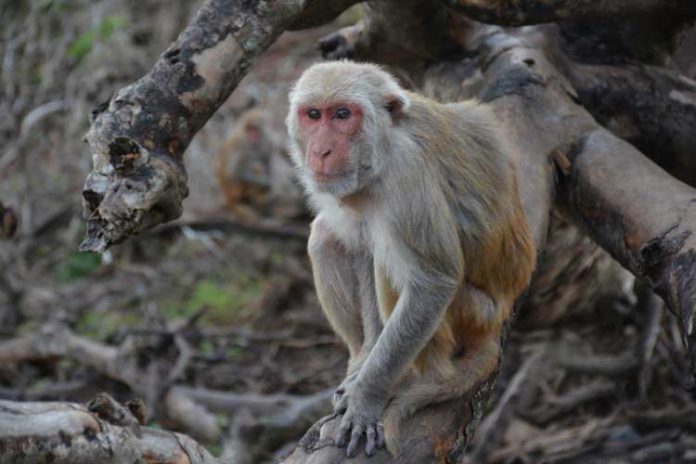Even though stress is a normal physical reaction, it can sometimes have negative effects on your health. It wears down the body and compromises the immune system, leaving a person more vulnerable to illnesses and other conditions.
It is still unclear that how the association between stress and health plays out at the cellular level.
In the aim of understanding how the mechanisms through which social experiences or environment ‘get under the skin’ to affect health and survival, scientists at the University of Washington conducted a study. They examined one key stress-inducing circumstance — the effects of social hierarchy — and how cells respond to the hormones that are released in response to that stress.
They found that social status determined how individual macaques responded to a key stress hormone, glucocorticoid.
Scientists choose to conduct the study on a nonhuman social primate: the rhesus macaque. They started by mixing existing social groupings of nearly four dozen macaques. Next, they analyze social behaviors in groupings and then took blood samples to determine the cellular effects of the new social order.
They measured effects on the peripheral immune system, which are immune cells that monitors other systems of the body, such as muscles.
Noah Snyder-Mackler, a UW assistant professor of psychology said, “Macaques were a suitable subject for this research. They are relatively close cousins of humans but lack certain cultural or societal factors, such as substance use or access to medical care, which can complicate any corresponding study of human health.”
In human and different primates, social status has been connected to wellbeing and quality of life. Lower societal status can mean less social and community support, and less supports against stress or adverse conditions.
In animals, that equates to fewer allies and greater harassment from peers, while in humans, lower status is often tied to struggles with income, employment and relationship stability.
Scientists noted, “Organizing the macaques into nine new groups in effect created a new social hierarchy whereas the order in which each monkey was introduced also determined its status. The first in the group became the most dominant and held the highest rank, while the last to join the group typically held the lowest status.”
Once each group’s hierarchy was established, scientists were able to determine the macaque’s behavior. By taking blood samples and treated them with a synthetic glucocorticoid, scientists could observe how the glucocorticoid hormone could affect cellular behavior in different macaques.
In this experiment, the cells of the lower-status macaques were less able than those of the higher-status animals to respond productively to the glucocorticoid.
Why did this happen?
Scientists found the answer by measuring chromatin accessibility. They found that low-status females had immune cells that were less accessible to the signal from the glucocorticoids.
Snyder-Mackler said, “Given the shared biology and evolutionary history between monkeys and humans, these findings help us better understand how social status can affect humans.”
“Though further research is required to identify the magnitude of the effects of stress, as ignited by a change in social status, and what buffers might protect individuals from those impacts. Not all individuals respond similarly to the same stress; some are more resilient — or susceptible — to the same stressor.”
The study is published Dec. 11 in the Proceedings of the National Academy of Sciences.
